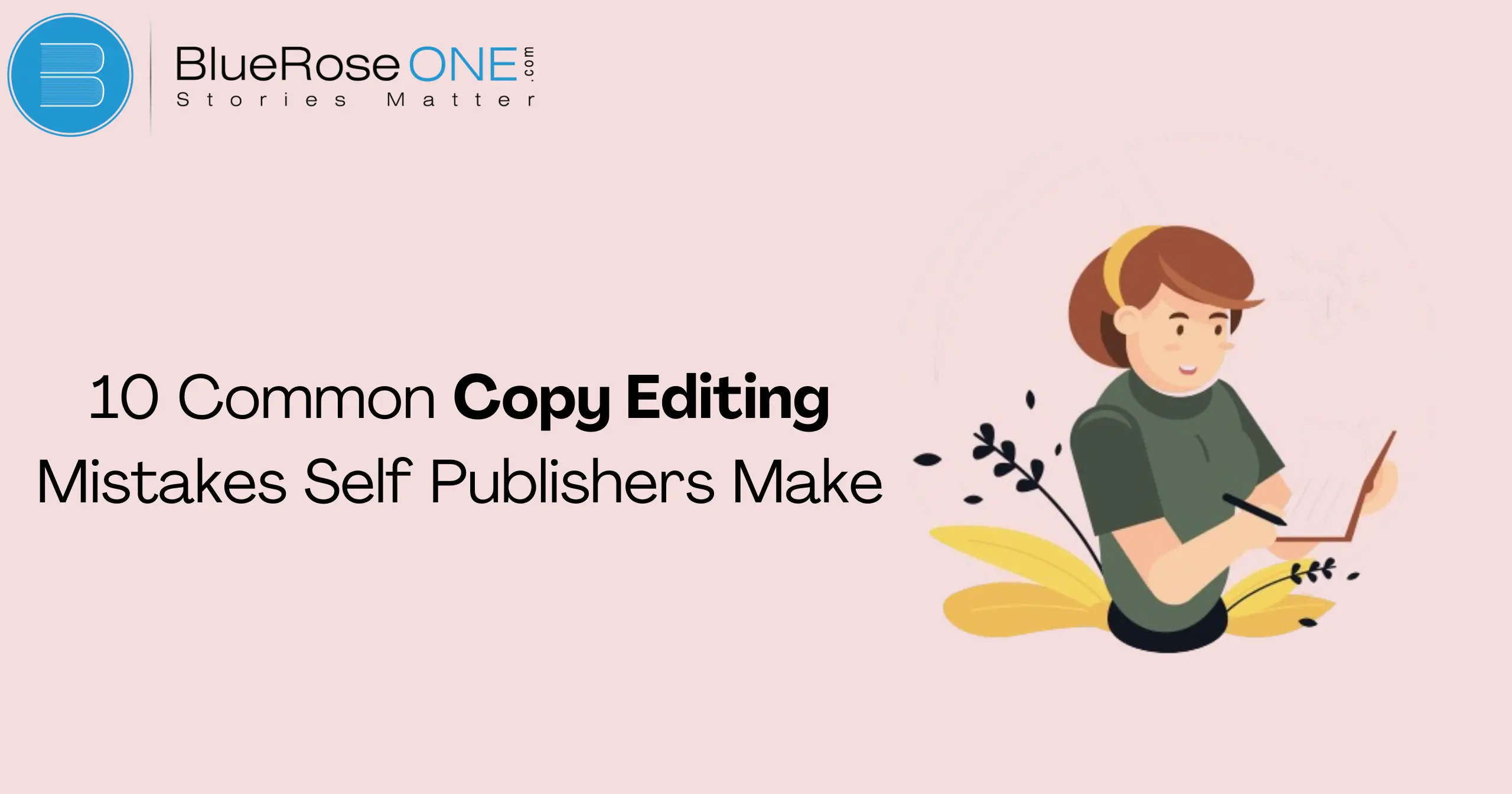In the rapidly growing field of self-publishing, creating content of the highest calibre is essential to success. Even the most careful authors, nevertheless, occasionally make typical copy editing errors that lessen the professionalism and readability of their writing. We’ll look at ten of these typical problems in this post and offer helpful advice on how to avoid them.
Skipping the Editing Process Entirely
Self-publishing authors who are anxious to get their work out there sometimes find it tempting to skip the editing process altogether, but this is a hazardous tactic that can compromise the quality of their copy editing.
In order to achieve flawless, error-free manuscripts when self-publishing, effective copy editing is essential. Ignoring this stage might lead to grammatical mistakes, typos, and consistency issues that can eventually lower the final product’s professionalism.
It is important for authors to understand that careful copy editing makes their writing more readable and credible, which increases their chances of success in the cutthroat world of self-publishing. Strict editing takes time and work, but it can greatly improve a self-published book’s overall quality.
You may also like: 10 Eye-Catching Book Cover Design Ideas for your Next Bestseller
Relying Solely on Spell Checkers
It can be harmful to the copy editing process to rely only on spell checkers, particularly for authors who are attempting self-publishing.
Spoken word errors and blatant typos are flagged by spell checks, but homophones, context-based errors, and grammatical inconsistencies are frequently missed. To ensure that copy editing is done well, the document must be thoroughly examined for coherence, clarity, and style.
To compete in the crowded market, self-publishing authors must make sure their work is polished and professional. Spell checkers should be used as one tool in a toolset for copy editing, but in order to produce high-quality, error-free documents, they must be supplemented with editorial scrutiny and manual proofreading.
Overlooking Consistency
Self-publishers frequently make the copy editing error of “overlooking consistency” when they are preparing their manuscripts.
To keep the writing looking clean and professional throughout, consistency is essential. This covers maintaining consistency in formatting, style, spelling, and punctuation. If consistency is not maintained, readers may have a confusing reading experience and the work’s legitimacy may be questioned.
Self-publishers should proofread their works thoroughly, focusing on small things like spelling variations, punctuation usage, and formatting selections to guarantee a final product that is coherent and follows professional publishing standards.
You may also like: Digital Transformation Toolkit for Authors and Publishers: Essential Guide
Ignoring Passive Voice
One copy editing mistake that is frequently made in the self-publishing world is to neglect passive speech, which can take away from the readability and interest of your work. By hiding the person performing the action, passive voice detracts from prose and frequently leads to sentences that are more twisted and less powerful.
This is a common mistake that self-publishers fall into, unintentionally weakening their stories. When editing, writers should actively look for passive constructs and, if feasible, convert them into active voice to avoid making this error.
Self-publishers can improve the readability and resonance of their work, drawing readers in and supporting the success of their publications, by emphasising clarity and directness in their text.
Being Repetitive
Common problem writers get into when self-publishing is the trap of writing too much of the same thing. The key to resolving this problem is copy editing.
Repeating something lowers the text’s quality and increases the possibility that the reader will become disinterested. A competent copy editor goes through the document carefully, removing any superfluous words, phrases, or concepts.
Repetition makes the story more brief and clear, which improves the reading experience as a whole. Writers need to understand that meticulous copy editing is critical to keeping their writing coherent and interesting to readers, which will eventually support the success of their self-published projects.
Neglecting Dialogue Tags
One common copy editing error self-publishers make that can seriously impair the readability and coherence of their work is forgetting to include dialogue tags.
Readers rely on dialogue tags, such as “said,” “asked,” or “replied,” to identify which characters are speaking and to set the scene for their interactions. However, inexperienced writers frequently undervalue the significance of consistently employing dialogue tags or choose to skip them completely, which results in ambiguity and confusion.
Thoroughly going over dialogue portions to make sure tags are used correctly improves readability and keeps readers from misinterpreting text is part of effective copy editing.
You may also like: Top 10 Famous Adventure Books to Read for Book Lovers
Neglecting the Power of Proofreading
One typical yet crucial error in the self-publishing world is undervaluing copy editing. Eager to get their work out there, a lot of self-publishers frequently cut corners or even skip editing entirely. But failing to proofread thoroughly might seriously damage the final product’s professionalism and quality.
Well-executed copy editing guarantees that the text is flawless, free of errors, and prepared to enthrall readers. Without it, self-publishers run the danger of coming across awkward grammar mistakes, typos, and consistency issues that could undermine the legitimacy of their work. Because of this, self-publishers who want to generate polished, professional manuscripts must prioritize careful copy editing.
Ignoring Reader Feedback
One of the most frequent copy editing errors self-publishers make is ignoring reader input, which frequently results in works of inferior quality. In order to edit content effectively, one must pay attention to audience reactions in addition to grammatical and style corrections.
Ignoring reader input can cause you to miss important clues about engagement, coherence, and clarity. Self-publishers lose out on chances to improve their manuscripts and meet the needs of their intended audience when they reject or ignore helpful critique.
Editing processes that incorporate reader comments reinforce and promote self-published works’ overall quality, bringing them closer to readers’ expectations and increasing their marketability.
Conclusion
In conclusion, self-publishing presents writers with unmatched flexibility and opportunity, but it also necessitates a meticulous attention to detail and a dedication to quality.
You can improve the calibre of your writing and make a name for yourself in the competitive self-published literary market by staying away from these typical copy editing errors and taking a careful approach to editing.
It’s important to keep in mind that the details matter a lot and that paying attention to them can have a significant impact on your success as a self-publisher.
















